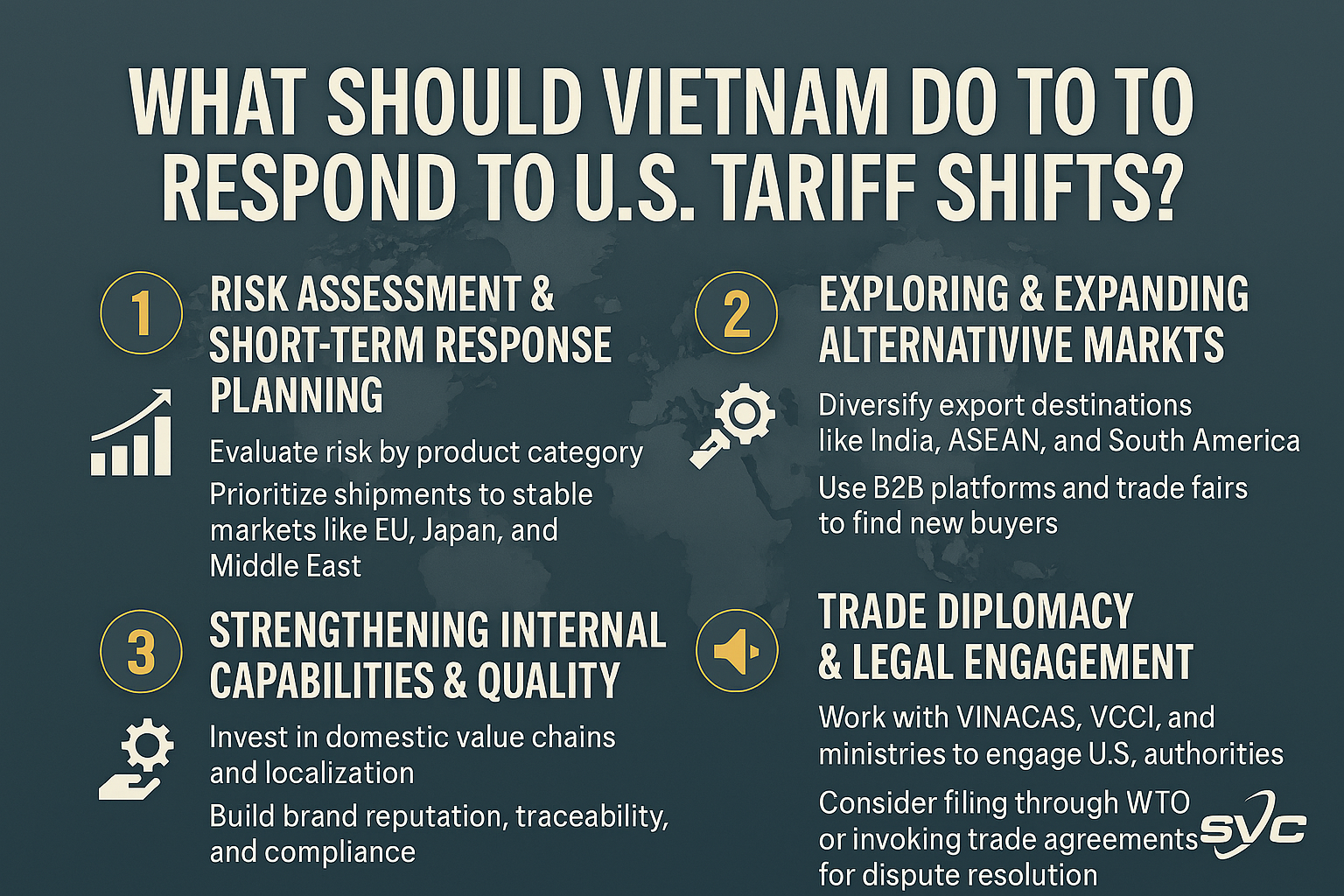In April 2025, the United States announced a 46% reciprocal tariff on Vietnamese imports, raising significant concerns for key export sectors such as cashew nuts, textiles, wood products, and electronics. In this context, Vietnamese businesses must adopt proactive and flexible strategies to navigate a more unpredictable global trade environment.
1️⃣ Risk Assessment & Short-Term Response Planning
📊 The first step is to evaluate potential risks for each product category under review. This includes reassessing ongoing contracts, identifying which goods may be affected, and prioritizing delivery to more stable markets like the EU, Japan, South Korea, and the Middle East.
🎯 Companies should consider postponing large shipments to the U.S. where possible, to reduce financial risks. Redirecting supply to alternative markets can also help maintain revenue continuity.
2️⃣ Exploring & Expanding Alternative Markets
🌐 Businesses should diversify their export portfolio rather than relying heavily on a single major market. Restructuring exports and targeting new regions like India, ASEAN, and South America will mitigate risk.
🤝 Participating in trade fairs, B2B platforms, and increasing direct engagement with global buyers will open new distribution channels and reduce dependence on any one market.
3️⃣ Strengthening Internal Capabilities & Quality
🏭 This is the time for businesses to review and optimize their value chain. Investing in domestic production, increasing localization, improving packaging, and logistics can reduce costs and build a long-term competitive edge.
💼 Enhancing brand identity, geographical indication (GI), and traceability will increase the value proposition of Vietnamese goods, especially as import standards become stricter globally.
🥜 For the cashew sector, deep processing (roasted cashews, cashew butter, snacks…) will not only boost export value but also unlock access to higher-end market segments.
4️⃣ Engaging in Trade Diplomacy & Legal Channels
📣 Government agencies, industry associations like VINACAS, and business chambers must coordinate quickly to provide feedback to the U.S., while leveraging bilateral and multilateral diplomacy to address concerns.
📝 If needed, Vietnam should pursue legal channels such as the World Trade Organization (WTO) or appeal to trade agreements where the U.S. is a signatory to resolve disputes and protect its economic interests.
✅ Conclusion
The world is entering a new phase marked by unprecedented trade turbulence. For Vietnam, this should be seen not only as a challenge but also as an opportunity to restructure and shift from broad growth to in-depth value. Proactive strategy, diversified markets, strong quality control, and deep market integration will be the pillars for long-term success.
💎 SVC is committed to supporting the Vietnamese cashew industry and export community through modern processing technology, strict quality control, and sustainable global market expansion.
SVC INTERNATIONAL JSC
Email: thanh@svc.vn
Phone: 090 943 24 77
WhatsApp: Click here

